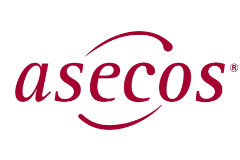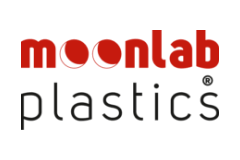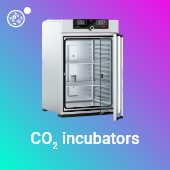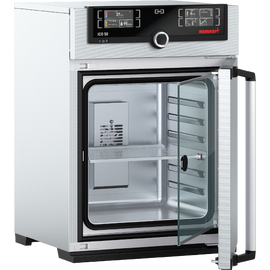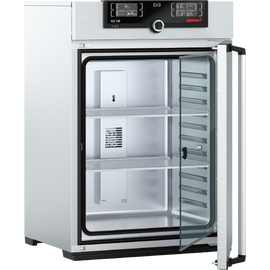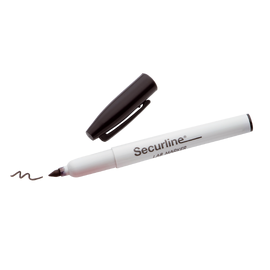Our assortment
 neoGreen - Sustainability in the lab hotneoGreen - Nachhaltigkeit im Labor
neoGreen - Sustainability in the lab hotneoGreen - Nachhaltigkeit im LaborTOP MARKEN
 CHEMICALSChemicals
CHEMICALSChemicals- From A to Z
- Amino acids and proteins
- Buffers, antibiotics and protease inhibitors
- Ion pair reagents and excipients
- Complexing agents and customised solutions
- Solvents, deuterated compounds and detergents
- Microbiological media and enzyme substrates
- Oxides and peroxides
- pH buffer solutions and conductivity standards
- Polymers and colourants
- Salts, acids and bases
- Cell culture media, serum and serum replacement
- Sugar, metabolites and natural substances
 Kits for nucleic acid extraction
Kits for nucleic acid extraction
TOP MARKEN
neoFroxx // HiMedia // Biological Industries // Penta
 Container and bag
Container and bag Clothing and protective equipmentClothing and protective equipment
Clothing and protective equipmentClothing and protective equipment Office and letteringOffice and lettering
Office and letteringOffice and lettering Filters, sieves and funnelsFilters, sieves and funnels
Filters, sieves and funnelsFilters, sieves and funnels Bottles, closures and reaction vesselsBottles, closures and reaction vessels
Bottles, closures and reaction vesselsBottles, closures and reaction vessels Glass apparatus and glass componentsGlass apparatus and glass components
Glass apparatus and glass componentsGlass apparatus and glass components Small and spare partsSmall and spare parts
Small and spare partsSmall and spare parts Electrodes, sensors and probes
Electrodes, sensors and probes Batteries and accumulators
Batteries and accumulators Balls and beads
Balls and beads Mats
Mats Pouring and marking rings
Pouring and marking rings Rotors
Rotors Inserts and shelves
Inserts and shelves Weighting material
Weighting material Biochemicals and reagents
Biochemicals and reagents pH buffers and solutions
pH buffers and solutions Cool packs and cold packs
Cool packs and cold packs Optical filters and attachment systems
Optical filters and attachment systems Springs and brackets
Springs and brackets Replacement filter
Replacement filter Cartridges and cartridges
Cartridges and cartridges Adapters and attachments
Adapters and attachments Test weights and weight sets
Test weights and weight sets Spare bulb
Spare bulb Connecting cable
Connecting cable Microscope components
Microscope components Mains and chargers
Mains and chargers Magnetic stir bar and remover
Magnetic stir bar and remover pH measuring paper and steri indicators
pH measuring paper and steri indicators Pipette holder and housing
Pipette holder and housing Device protection hoods
Device protection hoods Splinter protection for glass vessels
Splinter protection for glass vessels Windbreak
Windbreak Fittings for pumps
Fittings for pumps
 Pistons, buckets and cylindersPistons, buckets and cylinders
Pistons, buckets and cylindersPistons, buckets and cylindersTOP BRANDS
 Laboratory equipment, dispensers and furnitureLaboratory equipment, dispensers and furniture
Laboratory equipment, dispensers and furnitureLaboratory equipment, dispensers and furniture Laboratory equipment and measuring instrumentsLaboratory and measuring equipment
Laboratory equipment and measuring instrumentsLaboratory and measuring equipment Pumps and suction system
Pumps and suction system Blenders, mixers and mills
Blenders, mixers and mills Shaker and vortexer
Shaker and vortexer Cleaning equipment and sterilizers
Cleaning equipment and sterilizers Magnetic stirrers, mixers and rotators
Magnetic stirrers, mixers and rotators Counting and measuring devices
Counting and measuring devices Workbenches and glove boxes
Workbenches and glove boxes Scales
Scales Burner
Burner Computers, printers and mice
Computers, printers and mice Water baths, stretch baths and thermostats
Water baths, stretch baths and thermostats Electrophoresis equipment and casting stands
Electrophoresis equipment and casting stands Centrifuges
Centrifuges Refrigeration and freezing plants
Refrigeration and freezing plants Documentation systems
Documentation systems Water treatment systems
Water treatment systems Refractometer and photometer
Refractometer and photometer Microscopes
Microscopes Thermal cycler and qPCR cycler
Thermal cycler and qPCR cycler Rotary Evaporator
Rotary Evaporator Screening machines
Screening machines Heaters and thermal cabinets
Heaters and thermal cabinets
TOP BRANDS
 Laboratory instruments and toolsLaboratory instruments and tools
Laboratory instruments and toolsLaboratory instruments and tools Tools
Tools Cannulas
Cannulas Hand magnifiers, eyeglass preset magnifiers and preset lenses
Hand magnifiers, eyeglass preset magnifiers and preset lenses Spoons, spatulas and rods
Spoons, spatulas and rods Syringes
Syringes Inoculation loops and wire
Inoculation loops and wire Tweezers
Tweezers Scalpels, blades and dissecting instruments
Scalpels, blades and dissecting instruments Scoops and specimen collectors
Scoops and specimen collectors Knife and cutter
Knife and cutter Cable ties and loops
Cable ties and loops Hand homogenizer and pestle
Hand homogenizer and pestle Flashlights, hand lamps and pointers
Flashlights, hand lamps and pointers Stirring tools
Stirring tools Scraper
Scraper Scissors and vascular clamps
Scissors and vascular clamps Mudflat cord
Mudflat cord
 Slides, cover slips and staining boxesSlides, cover slips and staining boxes
Slides, cover slips and staining boxesSlides, cover slips and staining boxesTOP BRANDS
 Pipettes, dispensers and pipette tipsPipettes, dispensers and pipette tips
Pipettes, dispensers and pipette tipsPipettes, dispensers and pipette tips Racks, stands and racksRacks, stands and racks
Racks, stands and racksRacks, stands and racksTOP BRANDS
 Cleaning, care and first aid
Cleaning, care and first aid Hoses, connectors and tapsHoses, connectors and taps
Hoses, connectors and tapsHoses, connectors and tapsTOP BRANDS
 Tripod construction, lifting platforms and clampsTripod construction, lifting platforms and clamps
Tripod construction, lifting platforms and clampsTripod construction, lifting platforms and clamps
Search

